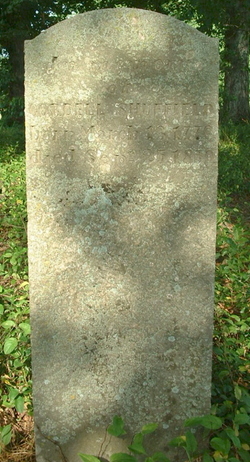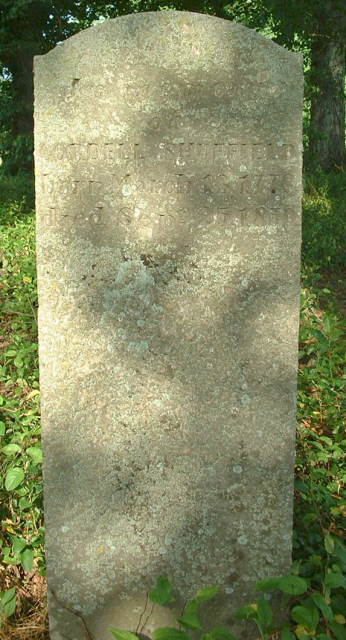August 1, 1907
CORDELL SHEFFIELD was reared in South Carolina and moved to Wilson County where he lived for 2 years and in 1809 removed to Lincoln County settling near Camargo on McCullough's Creek, a stream named for an Indian. He bought 40 acres from Mr. James Bright and entered the rest of his farm. On August 31, 1828, his son, John J. Sheffield, was born and he has lived on the place continuously since then. On the place is a barn which was built in 1827 that is yet in a fine state of preservation. The sills under it are massive walnut timbers. Mr. Sheffield called on the Observer Monday and says that he and C. C. McKinney, Esq., of Fayetteville, are the only men of the county who have lived continuously for 79 years on the same place on which they were born. Mr. S. M. Gleghorn live on the farm on Craighead creek where he was born 76 years ago.
September 5, 1907
MADE THEIR OWN COFFINS
Two Lincoln Countians who manufactured the case in which they were buried.
Messres. J. J. Sheffield and J. F. Clark, of Camargo, were in the Observer Office on Monday and relate an incident in connection with their fathers.
Cordall Sheffield died on September 25, 1850 and it happened that orders were given to two cabinet workmen for burial cases - Mr. Joseph Clark and Mr. Dickey. The coffins of those days were home-made constructed of walnut, the greatest width across the chest and tapering on both ends. The lid was the highest along the middle line and sloped to both side like the roof of a house. To make a coffin of the old style and dressing the lumber by hand was a considerable job and required an expert workman to make the joints. The scarcity of lumber led to the manufacture of cloth-covered caskets of different shapes. Mr. Dickey was the first to reach the Sheffield home with his job and his coffin was used. Upon being told of it Mr. Clark said, that is all right; I'll keep it for someone else or perhaps my self." He held it for 13 years and in 1863 was buried in it.
Rev. Hiram Tartar, who for years worked at the Formwalt undertaking shop, made a coffin years before his death in which he expressed desire to be buried, and when he died in East Tennessee it was shipped there and his body placed in it for interment.
August 1, 1907
CORDELL SHEFFIELD was reared in South Carolina and moved to Wilson County where he lived for 2 years and in 1809 removed to Lincoln County settling near Camargo on McCullough's Creek, a stream named for an Indian. He bought 40 acres from Mr. James Bright and entered the rest of his farm. On August 31, 1828, his son, John J. Sheffield, was born and he has lived on the place continuously since then. On the place is a barn which was built in 1827 that is yet in a fine state of preservation. The sills under it are massive walnut timbers. Mr. Sheffield called on the Observer Monday and says that he and C. C. McKinney, Esq., of Fayetteville, are the only men of the county who have lived continuously for 79 years on the same place on which they were born. Mr. S. M. Gleghorn live on the farm on Craighead creek where he was born 76 years ago.
September 5, 1907
MADE THEIR OWN COFFINS
Two Lincoln Countians who manufactured the case in which they were buried.
Messres. J. J. Sheffield and J. F. Clark, of Camargo, were in the Observer Office on Monday and relate an incident in connection with their fathers.
Cordall Sheffield died on September 25, 1850 and it happened that orders were given to two cabinet workmen for burial cases - Mr. Joseph Clark and Mr. Dickey. The coffins of those days were home-made constructed of walnut, the greatest width across the chest and tapering on both ends. The lid was the highest along the middle line and sloped to both side like the roof of a house. To make a coffin of the old style and dressing the lumber by hand was a considerable job and required an expert workman to make the joints. The scarcity of lumber led to the manufacture of cloth-covered caskets of different shapes. Mr. Dickey was the first to reach the Sheffield home with his job and his coffin was used. Upon being told of it Mr. Clark said, that is all right; I'll keep it for someone else or perhaps my self." He held it for 13 years and in 1863 was buried in it.
Rev. Hiram Tartar, who for years worked at the Formwalt undertaking shop, made a coffin years before his death in which he expressed desire to be buried, and when he died in East Tennessee it was shipped there and his body placed in it for interment.















